How AdWords Became Critical for Your Business in 2013
Do you rely on Google search traffic to bring you online leads and sales?
Then you need to know: Google changed the game big time in 2013.
If you don’t advertise your business using Google AdWords, then you might not be in the game for much longer!
I’ll leave the technical details of Google’s recent changes to other bloggers who have captured them so well. In this post I’m going to focus on one thing:
What do Google’s changes mean for your business?
Specifically, on this new Google game board, how will you get new leads and customers for your business website?
First, let’s understand what’s happened…
(Also see 3 Big Reasons to Love Google AdWords)
The players on the field: SEO and PPC
When your prospective customer searches on Google, your business has two places where it can be seen — in the organic search results and in the paid search results.
Because Google commands 2/3 of the online search market in the U.S. with over 4x the traffic of its nearest competitor. Enough said?
But much of this discussion applies equally well to other search engines, which largely take their lead from Google.
Organic listing rankings are influenced by search engine optimization (SEO). Paid ad rankings are controlled by pay-per-click auctions (PPC).
Organic search results appear in the wide left-hand column of the search engine results page (SERP). Paid search results, when present, can appear above, below, and to the right of the organic search results.
A click on your organic listing is free.
This is why businesses spend so much money on search engine optimization (SEO) consultants (*ahem*), who can help business website listings be seen in the top organic positions.
(Such organic listings are also still generally more trusted by searchers, at least by those who understand the difference between paid ads and organic ads, which half of searchers don’t understand.)
A click on your paid listing is, of course, not free.
This is why businesses spend so much money on AdWords (PPC) consultants (*ahem*), who can help them develop profitable long-term campaigns.
For years businesses have been able to drive well-targeted prospects to their websites using both SEO and PPC. And for many businesses, a focus on SEO was all they needed.
How the game has changed
Google re-drew the playing field dramatically for SEO and PPC in 2013.
And PPC is the clear winner.
Consider:
1. Google makes most of its money from searchers clicking on their paid ads.
2. Google is a for-profit business.
Therefore, it should surprise precisely no one that Google seeks ways to get more people to click on its paid ads!
Many people tell me, “Well, I personally never click on paid ads. So clearly they don’t work.” Think again.
Research performed by WordStream (and others) has demonstrated that paid ads capture a full 2/3 of clicks for searches with high “commercial intent”. You can see that data and much more in their very cool Google AdWords infographic.
This is no accident.
Google has been executing a comprehensive plan to promote organic results that “best answer searcher questions”, culminating with a full redesign of their search algorithm launched this summer under the release name “Hummingbird“.
That sounds great for searchers, and it is. But what that also means is that more of the top organic rankings are being given to blog, wiki, news, and forum websites — not business websites.
At the same time, paid ads are taking over more and more of the real estate on the page for high commercial intent searches (see the images below).
What does all this mean?
It means that searchers on Google are being trained to do the following:
- Click on organic listings when they want to find information
- Click on ads when they want to make purchases
OK, but how bad it can be?
What the playing field looks like now
Below are several screenshots of Google SERPs for related search terms. I began with informational queries and advanced to more specific “commercial intent” queries.
[NOTE: If you perform the same searches you will see some variation in results due to your location, search history, time of day, etc.]
As above, the green boxes show the free organic listings, and the orange boxes show the paid ad listings.
Google Search #1) “Do I need a laptop?”
The entire page is green! Not a single Google AdWords advertiser is bidding on a keyword that would trigger an ad to display for this search term. This is a very good indication that no advertiser thinks placing an ad here would make them enough money to justify the ad costs.
So while you might be delighted to see your website rank highly in these organic listings, you should realize that you’re unlikely to make much money from it either.
Google Search #2) “Pick a laptop”
Now we start to see paid ads on the page. But the organic listings still comprise 2/3 of the real estate.
Google Search #3) “Buy a laptop”
Now advertisers are getting excited. Ads appear both above and to the right of the organic listings, which now comprise only about 1/3 of the page area.
Google Search #3) “Buy a cheap laptop”
While you might think that “cheap laptop” should be a less desirable commercial term, the opposite is true. It’s more specific, which means the searcher is likely closer to making a purchase.
And now the organic listings have been reduced to a mere 20% of the page real estate that’s visible without scrolling!
What is all that extra ad stuff?
Let’s zoom in…
The two AdWords ads at the top are taller than normal because they employ “ad extensions”. In this case, the first one displays an address & phone row plus two rows for direct links to deeper website pages. The second one displays an opt-in form right in the ad.
Google has been steadily increasing the diversity and value of its ad extensions over the past year. And last month (October 2013), Google revealed the punchline: Ad extensions now influence AdWords Ad Rank! Long story short, you’ll be seeing lots more of these space-eating ad extensions in the future, pushing the organic search results further and further down the page.
And what about those Product Listing Ads? Those used to be free organic results. Last year Google converted them to paid ads, and your products will now only appear if you configure them through your paid Google AdWords account. And since they sometimes appear in the left column, they also push the organic results further down the page.
Any other bad news for SEO?
Yes! Look at this search on “What is a laptop?” There’s only one paid ad, which isn’t too bad.
But what’s that blue box?
It turns out that, for a variety of search queries, Google is now going to try to answer your questions directly using its own “Knowledge Graph” database.
Google seems intent on bringing to life Isaac Asimov’s Multivac, fulfilling our greatest childhood sci-fi fantasy! (What? Wasn’t that your fantasy, too?)
Again, this new feature is great for searchers (Google’s customers), but more bad news for businesses vying for attention. Organic listings are again being pushed further down the page. Worse still, why would a searcher even click on your listing, no matter how awesome your answer might be, if Google already answered their question?
So is it “game over” for Team SEO?
Thankfully, no!
It’s over for “old-school SEO” — the kind of SEO done back in ancient times (i.e., up thru 2012).
Successful SEO today and going forward will mean a laser-like focus on producing highly valuable and unique content that readers will want to “like” and share, and then getting it optimally indexed for Google. It will mean using your strategic content marketing plan to help and inform prospective customers, raise brand awareness, build trust and authority, build your email list, and eventually, down the road, convert these subscribers, fans and followers into customers.
But playing on the SEO team will most certainly be harder, take longer to yield revenue, and cost more than it used to.
Can small businesses still afford to play for Team AdWords?
Absolutely!
Companies cannot simply bid their way to the top ad positions. Google places a premium on relevance, because that’s what their customers demand. If your ads and landing pages are more relevant, then Google will reward you with higher ad positions and lower cost per click than what your competitors’ pay.
The benefits of even marginally profitable Google AdWords campaigns are overwhelming:
- Reach far more potential customers
- Learn which marketing messaging and offers resonate best
- Learn who your best customers are
- Learn how to improve your website conversion rates
- Get all this critical business feedback far more quickly and reliably than through any other marketing channel
The way I look at it, you can’t afford not to use AdWords as a marketing channel.
So what’s the best way to win the Google game now?
If you have the resources, play for both teams!
That’s not only allowed in this game, it’s strongly encouraged. What you learn through AdWords can dramatically improve your SEO efforts, and vice-versa.
If that’s not practical for you right now, then consult your marketing adviser and pick the approach most likely to meet your online business objectives.
But understand what Google’s changes mean for your business:
If you need leads or customers through Google, then advertising with AdWords is more important than ever.
Don’t be left out of the game.
Contact me for a free consultation about your online marketing strategy or if you’d like to get started with AdWords.
Or post your question below, and I promise to answer it.

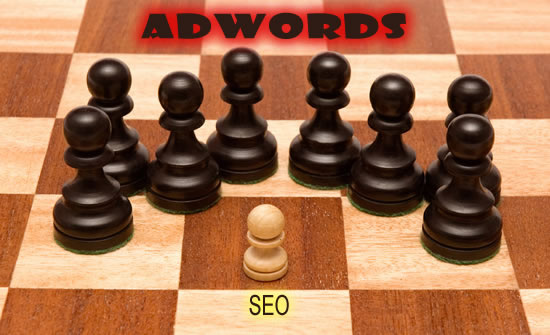
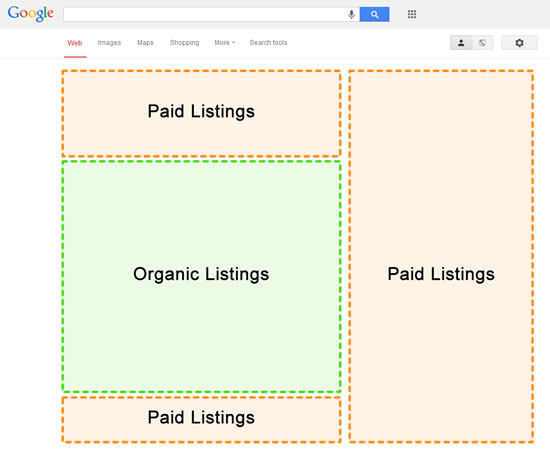
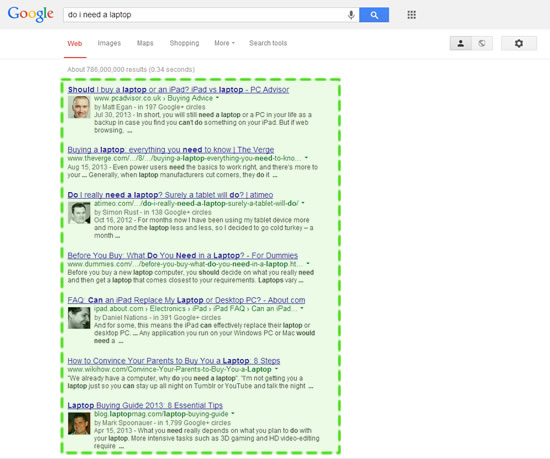
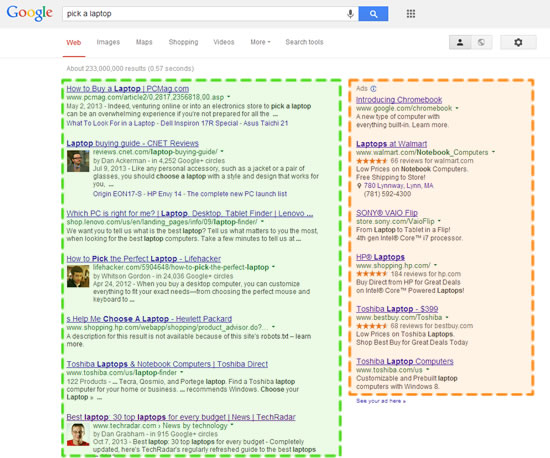
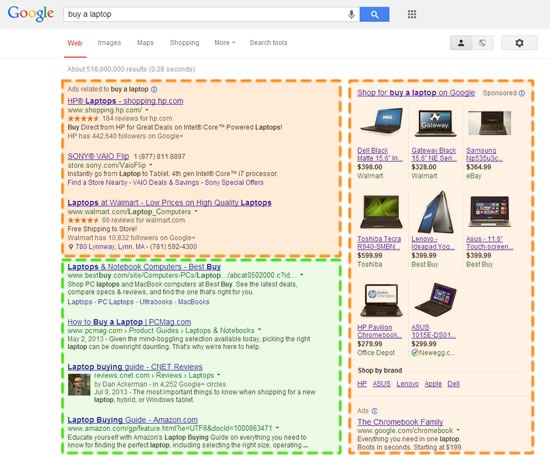
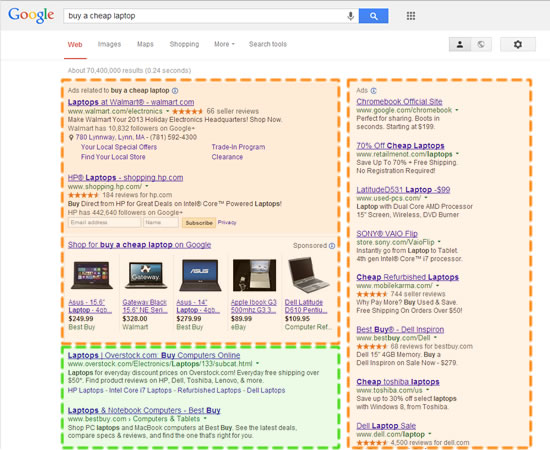
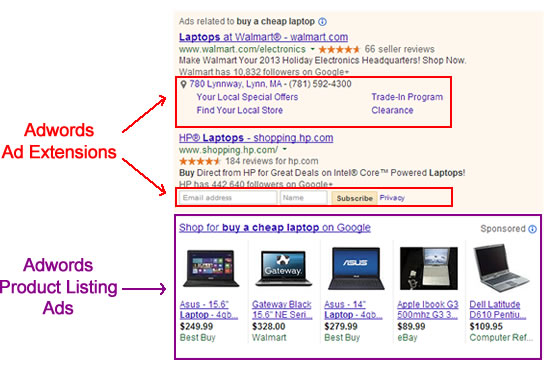
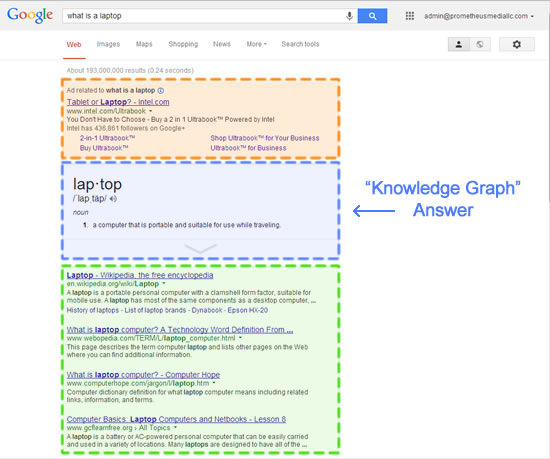

Wow… extremely enlightening stuff.
As an SEO it’s easy to be mad at Google for changing the game so much so quickly, but it’s really for the best. The average searcher is getting what they need much more quickly.
Of course Google is improving for the better, it may be more difficult to rank for free but those that do are high quality sites 🙂
Interesting concept, thanks for writing about this 🙂
This is just what I needed to know about adwords, rare to find such quality, cheers!
But don’t adwords prices change and vary depending on where you want to target your ads?
Hi, Charlie. I’m not quite sure what you’re really asking with your question? But yes, Adwords bid prices vary dramatically based on many factors including the geographies you target, the time of day, what your competition is doing, keyword match types, and more.
Great discussion, learned a lot- thanks for the constant support!
Love the marketing tips you constantly post on your site!!
I think adwords benefits depend on the size of the business, because it may not always bring a lot of benefits 🙂
Hi Stacey — That’s very true. AdWords will not be an effective marketing channel for every business. It depends less on the size of the business, though, than on the economics of the products or services being sold.
Great article!
Both SEO and AdWords are great tools. They certainly compliment each other. I always encourage clients to take advantage of both as this will only give you additional “real estate” on Google and other search engines should you decide to go the paid route on Bing or Yahoo.
Thanks for your comment, Jasa. There are definitely great reasons to pursue both SEO and AdWords. They can complement each other very well for many businesses, and what you learn in one will help you also get better results in the other.
Great article, Andrew! Indeed SEO and Adwords must be implemented to reach the full potential and maximum traffic for a specific keyword. But sometimes clients can’t take both, so we recommend adwords for quicker results. What do you think, Andrew? Thanks.